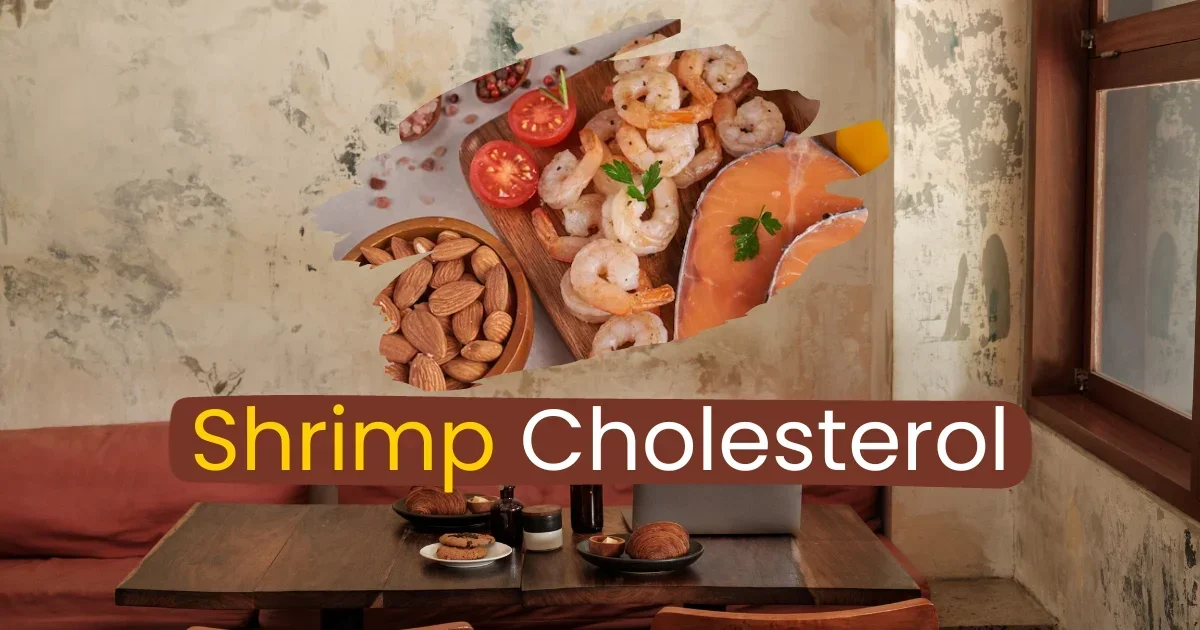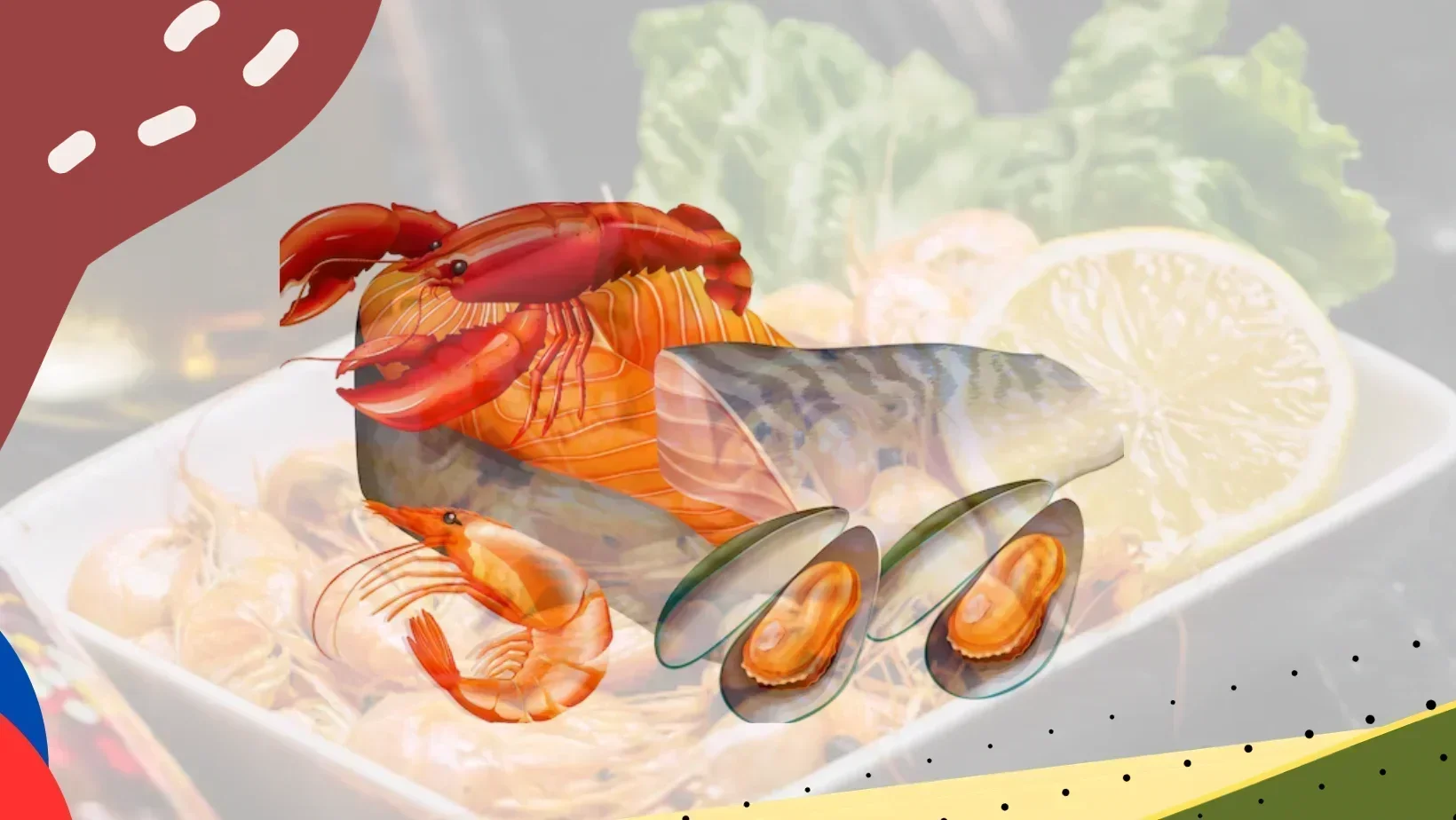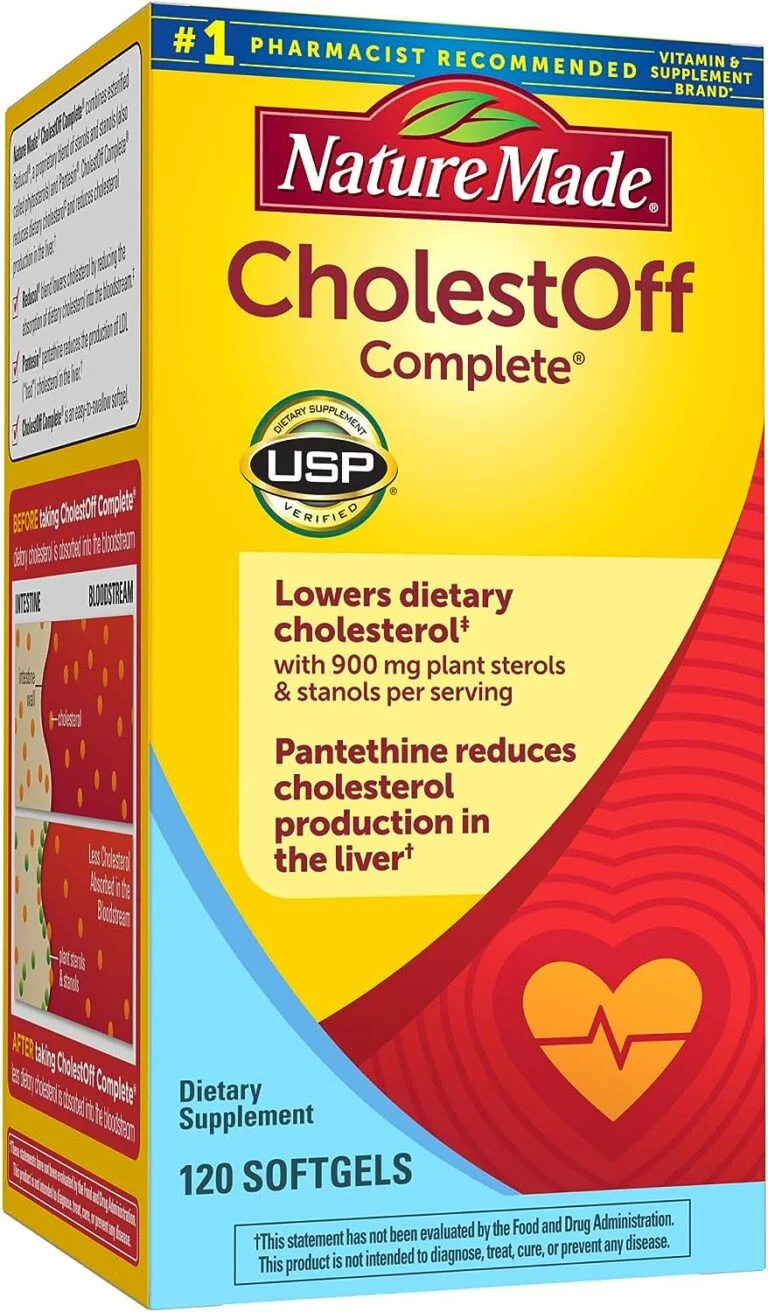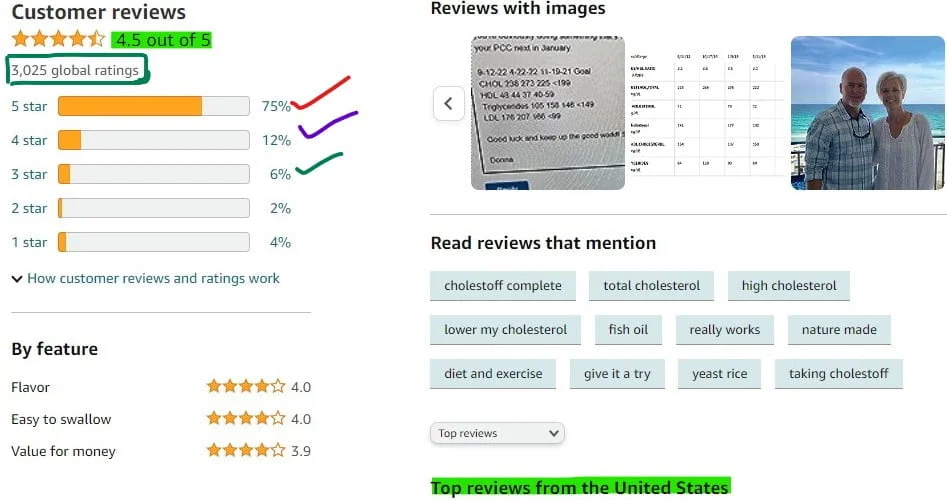1.Understanding Shrimp Cholesterol: Fact vs Fiction
Introduction: When it comes to seafood, Shrimp Cholesterol is a beloved delicacy enjoyed by many. Its sweet, tender flesh makes it a popular choice in various cuisines, from scampi to sushi rolls. However, there’s often confusion and debate about shrimp and its cholesterol content. In this blog post, we’ll delve into the facts and myths surrounding shrimp cholesterol, and provide you with a comprehensive understanding of whether shrimp can be a part of a heart-healthy diet.

Table of Contents: Shrimp Cholesterol
- What is Cholesterol: Before we dive into the specifics of shrimp cholesterol, it’s crucial to understand what cholesterol is and why it matters for your health.
- Cholesterol is a type of fat (lipid) that is essential for building cell membranes and producing hormones in the body. Your liver produces cholesterol naturally, but you also get it from the foods you eat. Cholesterol travels through your bloodstream in two main forms:
- (a).Low-Density Lipoprotein (LDL): Often referred to as “bad” cholesterol, high levels of LDL cholesterol can increase your risk of heart disease and stroke. It can lead to the buildup of plaque in your arteries, restricting blood flow.
- (b).High-Density Lipoprotein (HDL): This is known as “good” cholesterol because it helps remove LDL cholesterol from the bloodstream and transport it to the liver for excretion.
2.The Shrimp Cholesterol Controversy
Shrimp Cholesterol has been a point of contention among nutrition experts and health-conscious individuals due to its cholesterol content. Here’s what you need to know:
- Shrimp and Dietary Cholesterol: Shrimp is often singled out because it contains a relatively high amount of dietary cholesterol compared to other seafood and protein sources. A 3.5-ounce (100-gram) serving of shrimp can contain around 190 milligrams of cholesterol. This is higher than other popular seafood like salmon, which contains about 50 milligrams of cholesterol in the same serving size.
- Does Dietary Cholesterol Equal Increased Blood Cholesterol?: The presence of dietary cholesterol in food has led to concerns that consuming foods high in cholesterol, like shrimp, might raise blood cholesterol levels and increase the risk of heart disease. However, the relationship between dietary cholesterol and blood cholesterol levels is more complex than it may seem. Research over the years has shown that for many people, dietary cholesterol has a limited impact on blood cholesterol levels. While some individuals, known as “hyper-responders,” may experience an increase in LDL cholesterol when they consume more dietary cholesterol, the majority of people do not.
- Focus on Saturated and Trans Fats: In recent years, experts have shifted their focus away from dietary cholesterol as the primary factor in heart disease risk. Instead, research has highlighted the role of saturated and trans fats in raising LDL cholesterol and increasing the risk of cardiovascular disease. Foods high in saturated and trans fats, such as fried and processed foods, have a more significant impact on your blood cholesterol levels than dietary cholesterol itself. Therefore, it’s essential to consider the overall quality of your diet rather than fixating solely on the cholesterol content of individual foods.
3.Shrimp’s Nutritional Benefits
While Shrimp Cholesterol does contain dietary cholesterol, it also offers several nutritional benefits that make it a valuable addition to a balanced diet:
- High-Quality Protein Shrimp is an excellent source of high-quality protein, which is essential for building and repairing tissues in the body. It provides all the essential amino acids required for optimal health and muscle function.
- Essential NutrientsShrimp is rich in essential nutrients, including:
- Vitamins: Shrimp contains vitamins such as B12, which is vital for nerve function, and iodine, important for thyroid health.
- Minerals: It is a good source of minerals like selenium, which acts as an antioxidant, and zinc, necessary for immune function.
- Low in Calories: Shrimp is relatively low in calories compared to its protein content, making it a nutritious choice for those looking to manage their weight.
- Omega-3 Fatty Acids: Shrimp contains omega-3 fatty acids, particularly in its pink or reddish varieties. Omega-3s are known for their heart-healthy benefits and can help reduce inflammation and lower the risk of heart disease.
4.Moderation is Key
The key to enjoying Shrimp Cholesterol as part of a balanced diet is moderation. If you’re concerned about cholesterol levels or have been advised by a healthcare professional to limit your dietary cholesterol intake, consider the following tips:
- Portion Control: Keep your shrimp servings moderate, and balance them with other sources of lean protein like chicken, turkey, or plant-based options.
- Preparation Matters: How you prepare shrimp can significantly impact its nutritional profile. Avoid deep-frying or battering shrimp, as this can add unhealthy fats and calories. Opt for grilling, steaming, or sautéing with minimal oil.
- Pair with Heart-Healthy Foods: Include plenty of vegetables, whole grains, and legumes in your meals to offset the cholesterol content of shrimp.
- Limit Saturated Fats: Be mindful of the other foods you consume with shrimp. Avoid pairing it with dishes high in saturated or trans fats.
- Consider Your Overall Diet: Remember that it’s not just individual foods but your overall dietary pattern that matters most for heart health.
5.Shrimp and Special Considerations
If you have specific health concerns or dietary restrictions, consider how much of your diet and Shrimp Cholesterol should you include. You must consult a health care professional or registered dietitian.
- Shrimp and Allergies: Shrimp is one of the common allergens, and shrimp allergies can range from mild to severe. If you or someone you know has a shrimp allergy, it’s crucial to avoid shrimp completely and be vigilant about cross-contamination in food preparation.
- Sustainability and Sourcing: When purchasing shrimp, consider the sustainability and sourcing of the product. Look for certifications like the Marine Stewardship Council (MSC) or Best Aquaculture Practices (BAP) to ensure that the shrimp you consume is harvested or farmed in an environmentally responsible manner.
6.The Bottom Line
In conclusion, Shrimp Cholesterol can be a part of a heart-healthy diet when enjoyed in moderation and prepared in a health-conscious manner. While it does contain dietary cholesterol, the impact of dietary cholesterol on blood cholesterol levels varies among individuals.
Remember that overall dietary patterns, including the types of fats you consume, play a more significant role in heart disease risk than the cholesterol content of individual foods. Shrimp offers a range of nutritional benefits, including high-quality protein, essential nutrients, and omega-3 fatty acids, making it a nutritious choice when integrated into a balanced diet. As with any dietary choices, it’s essential to consider your individual health needs and consult with a healthcare professional or registered dietitian for personalized guidance. By making informed choices and practicing moderation, you can continue to enjoy the delicious taste of shrimp while prioritizing your

Shrimp Cholesterol
7.Exploring Shrimp Varieties
One fascinating aspect of Shrimp is the incredible diversity of species and varieties available worldwide. Shrimp can vary in size, flavor, texture, and even color. Let’s take a closer look at some of the most popular types of shrimp:
- Brown Shrimp: Brown shrimp, including species like the Gulf brown shrimp, are characterized by their brownish-gray color. They have a slightly stronger flavor compared to white shrimp and are popular in dishes like shrimp gumbo and shrimp creole. Brown shrimp are often found in the Gulf of Mexico and along the Atlantic coast.
- Pink Shrimp: Pink shrimp, such as the Oregon pink shrimp, have a delicate and sweet flavor profile. They are typically smaller in size compared to white and brown shrimp and are often used in salads, sandwiches, and shrimp cocktails. Pink shrimp are commonly found in the waters of the Pacific Northwest.
- Rock Shrimp: Rock shrimp are known for their firm texture and sweet taste. They have a unique appearance with a hard, spiny shell that resembles a rock, hence the name. Rock shrimp are typically found off the southeastern coast of the United States and are known for their popularity in dishes like shrimp and grits.
- Spot Prawns: Spot prawns are a highly prized variety known for their exceptionally sweet flavor and large size. They are typically caught in the Pacific Northwest and are often served as a delicacy in upscale seafood restaurants. Spot prawns are recognizable by their distinct white spots on their bodies.
- Tiger Shrimp: Tiger shrimp, or Penaeus monodon, are another popular variety known for their distinctive striped shells. They have a robust flavor and are commonly used in Asian cuisine, particularly in dishes like shrimp curry and Thai shrimp soup.
- Freshwater Shrimp: While most shrimp varieties are found in saltwater, there are also freshwater shrimp species, such as freshwater prawns. These shrimp thrive in freshwater environments like rivers and lakes. They are often used in freshwater aquaculture and can offer a unique flavor profile compared to their saltwater counterparts.
8.Health Benefits of Shrimp
Beyond its culinary appeal, shrimp also offers several health benefits:
- Low in Saturated Fat: Shrimp is naturally low in saturated fat, making it a heart-healthy protein source. A diet low in saturated fat can help reduce the risk of heart disease and maintain overall cardiovascular health.
- Rich in Omega-3 Fatty Acids: As mentioned earlier, shrimp contains omega-3 fatty acids, particularly in certain varieties like pink and spot prawns. Omega-3s are known for their anti-inflammatory properties and can help lower the risk of heart disease, improve brain function, and support joint health.
- High in Antioxidants: Shrimp contains various antioxidants, including astaxanthin, which gives some shrimp varieties their pink or reddish color.
- Good Source of Protein: Shrimp is an excellent source of high-quality protein, providing all the essential amino acids needed for muscle growth, repair, and overall health. It’s a valuable protein option for individuals following low-carb or high-protein diets.
- Nutrient-Rich: Shrimp is packed with essential nutrients, including vitamin B12, iodine, selenium, and zinc. These nutrients play vital roles in metabolism, immune function, and overall well-being.
9.Cooking and Serving Shrimp
Shrimp’s versatility in the kitchen makes it a favorite among home cooks and professional chefs alike. Here are some popular cooking methods and serving ideas:
- Grilling: Grilling shrimp imparts a smoky flavor and caramelization to the shells, enhancing their natural sweetness. Marinate the shrimp with your favorite herbs and spices, thread them onto skewers, and grill until they turn pink and opaque.
- Sautéing: Sautéing shrimp is a quick and easy method. Heat a skillet with a small amount of oil or butter, add the shrimp, and cook for a few minutes on each side until they become pink and slightly firm.
- Boiling: Boiling shrimp is a common method for preparing shrimp for dishes like shrimp cocktail or shrimp salads. To boil shrimp, bring a pot of salted water to a boil, add the shrimp, and cook until they turn pink and float to the surface.
- Baking: Baking shrimp with flavorful coatings like breadcrumbs, herbs, and spices creates a crispy and delicious dish. Consider preparing shrimp scampi or baked stuffed shrimp for a special meal.
- Shrimp Tacos: Create delicious shrimp tacos by seasoning cooked shrimp with spices like chili powder, cumin, and paprika. Serve them in warm tortillas with fresh salsa, guacamole, and shredded lettuce for a flavorful and healthy meal.
- Shrimp Stir-Fry: Stir-frying shrimp with a variety of colorful vegetables and your choice of sauce makes for a quick and nutritious meal. Customize your stir-fry with ingredients like bell peppers, broccoli, and snow peas.
Conclusion: Shrimp Cholesterol
In summary, shrimp can be part of a healthy diet when enjoyed in moderation. While it contains dietary cholesterol, its impact on blood cholesterol levels is not as significant as once thought. Focus on overall dietary patterns, limit saturated fats, and pair shrimp with heart-healthy foods for a balanced approach. Consult a healthcare professional for personalized advice, and relish the nutritional benefits and culinary pleasures that shrimp brings to your table.
FAQ,s: Shrimp Cholesterol
Q 1. Is shrimp high in cholesterol compared to other seafood?
While shrimp does contain more cholesterol than some other seafood, like salmon, its overall impact on blood cholesterol levels can vary from person to person.
Q 2. Are all shrimp varieties equally high in cholesterol?
No, different shrimp varieties can have varying cholesterol levels. For instance, white shrimp typically have higher cholesterol content than pink shrimp.
Q 3. Can I eat shrimp if I have high cholesterol?
It depends on your overall dietary choices and individual health conditions. Consult with a healthcare professional or dietitian for personalized advice.
Q 4. Are there any health benefits associated with eating shrimp?
Yes, shrimp is a good source of protein, omega-3 fatty acids, and essential nutrients like B12 and selenium, which can offer various health benefits.
Q 5. What is the recommended portion size for shrimp in a heart-healthy diet?
A typical serving of shrimp is around 3.5 ounces (100 grams), but portion size recommendations can vary depending on your dietary needs and overall calorie intake.
Q 6. Can I enjoy fried shrimp if I’m concerned about cholesterol levels?
Fried shrimp can be high in unhealthy fats and calories, which may not be ideal for heart health. Grilled or sautéed shrimp with minimal oil is a healthier choice.
Q 7. Are there any shrimp varieties that are particularly low in cholesterol?
Shrimp varieties like pink shrimp tend to have lower cholesterol content compared to some others. However, it’s essential to consider overall dietary patterns rather than focusing solely on cholesterol content.
Health Benefits of Nature Made CholestOff
Nature Made CholestOff is a dietary supplement designed to help maintain healthy cholesterol levels. It contains plant sterols and stanols, which can reduce the absorption of cholesterol in the intestines, thus supporting heart health. This supplement is often recommended as part of a balanced diet and exercise regimen to promote cardiovascular well-being. However, it’s essential to consult a healthcare professional before starting any new supplement, especially if you have specific health concerns or are taking medications, to ensure it’s appropriate for your individual needs. Always follow the recommended dosage and dietary guidelines for the best results.

However, it’s essential to consult a healthcare professional before starting any new supplement, especially if you have specific health concerns or are taking medications, to ensure it’s appropriate for your individual needs. Always follow the recommended dosage and dietary guidelines for the best results.
